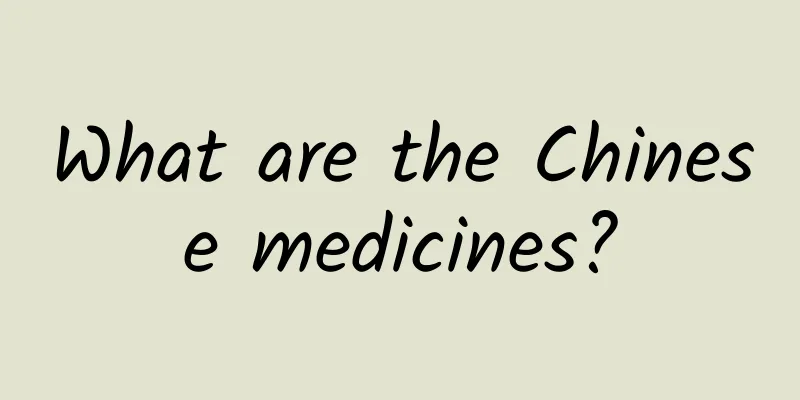Effects and functions of silver poplar leaves

|
Poplar leaf is a kind of traditional Chinese medicine. It is very helpful to the human body in treating certain diseases. Moreover, this kind of medicine is also widely used. When choosing poplar leaf, you need to understand its efficacy, effects and contraindications. Let's take a look at it below. [Source] Medicinal material source: The leaves of Populus alba, a plant of the Salicaceae family. 【Original form】 Tree. Up to 25cm. The bark is smooth; gray-brown or gray-white, with black and rough base on old trees; the crown is round. The twigs are cylindrical, smooth, reddish brown, and the sprouts are covered with soft hairs. Buds ovate or oval, glabrous, slightly mucilaginous. Petiole flattened, 2-6cm long; leaves triangular-ovate or nearly round, nearly equal in length and width, 3-6cm long, obtuse at apex, acute or shortly acuminate, base rounded truncate or shallowly cordate, with wavy shallow teeth on the margin; budding leaves large, triangular-ovate, pubescent beneath, sparsely or densely hairy on the inflorescence axis; bracts brown, palmately striped, with long hairs on the margin; male inflorescence 5-9cm long, stamens 5-12, anthers purple-red; female inflorescence 4-7cm long; ovary conical, stigma 2-lobed, reddish. The infructescence is up to 12 cm long; the capsule is ovate-conical, about 5 mm long, with a short stalk and 2-valved. The flowering period is March-April, and the fruiting period is April-May. [Habitat distribution] Ecological environment: It likes to grow on moist and fertile sandy soil. [Properties] Identification by properties: The leaves are mostly wrinkled and broken. The intact ones are nearly round when flattened, with 3-5 shallow palmate lobes, 4-10cm long, 3-8cm wide, gradually pointed at the apex, broadly cuneate or rounded at the base, and small teeth on the leaf margin. Gray-green above, white hairs visible below; petiole slightly flattened, covered with white hairs. The texture is brittle and easily broken. It has a light fragrance and a slightly bitter taste. [Chemical composition] The leaves contain O-β-D-glucopyranosyl-9-β-D-ribofuranosyl-dihydrozeatin, O-β-D-glucopyranosylzeatin, O-β-D-glucopyranosyldihydrozeatin, and isolariciresinol mono-β-D-glucopyranoside. The roots contain 7-O-methylaromadendrin and polysaccharides. 【Nature and flavor】 Bitter; cold 【Meridian】 Lung meridian 【Functions and indications】Relieves cough and asthma; resolves phlegm and clears heat. Mainly cough and asthma [Usage and Dosage] For oral use: decocted in water, 3-9g. For external use: take appropriate amount and gargle with decoction. 【Excerpt】 Chinese Materia Medica Through the description above, we know what silver poplar leaves are and what effects they have. The medicinal value of poplar leaves is very high, which is beneficial to improving the immune system and is a worthy choice for us. |
<<: The efficacy and function of silver back vine
>>: The efficacy and function of shady fern
Recommend
The efficacy and function of Shigugugu
Shitgugu is a common Chinese medicine in clinical...
TradingPlatforms: Apple Pay processes approximately $6 trillion worth of transactions each year, second only to Visa
Apple Pay has surpassed Mastercard in annual tran...
The reason why there are so many mosquitoes has been found. Does the virus attract mosquitoes by regulating skin bacteria to produce "mosquito attractants"?
Great scientific discovery! Mosquitoes can actual...
Fangfeng Tongsheng San
Fangfeng Tongsheng San is the name of a Chinese m...
What are the medicinal values of prickly ash sprouts?
I believe that when we come to the suburbs after ...
Even if you don't do anything wrong, there will still be "ghosts" knocking on your door! They specifically target people's "heads"...
Have you ever done something bad? Have you ever c...
Drones are just beginning to rewrite the rules of warfare, but their nemesis may have emerged
Drones have in fact changed the "rules of th...
Why is Venice, the "Water City", suffering from a severe water shortage? Experts explain three reasons
Recently, the water level of the river in Venice,...
I strongly recommend that you eat this kind of pear by "sucking" it, it's amazing!
Autumn is a good time to eat pears. There are man...
Can ginger, Polygonum multiflorum and black sesame really help grow dark hair?
“People born in the 1990s have already started lo...
Today, let’s take a look at these top “scam masters” in the biological world.
In nature, deception is common, relying on the su...
Which fruits are not sweet but can easily make people gain weight?
Hot weather, no appetite Have some fruit Some peo...
Why does cutting an onion make you cry? It's not because of the lyrics "peeling off my heart layer by layer"...
Onions are a vegetable that we often see in our d...
What Chinese medicine can nourish the kidneys the fastest?
Nowadays, work pressure is getting higher and hig...
Infographic: The current state of big data adoption by retailers
A 2011 McKinsey report stated that retailers’ use...









